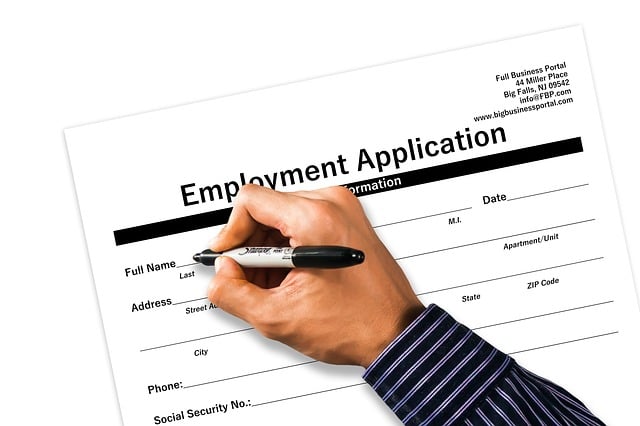The UK patent process, distinct from global standards, demands clear communication and stringent legal compliance. Professional translation services are vital for non-English speakers and international businesses to navigate this landscape, ensuring accurate conveyance of technical concepts in English. These services meet UK Intellectual Property Office (UKIPO) criteria, enhance application quality, and increase success rates. Accurate translations minimize legal issues, misinterpretations, and rejections, especially for complex inventions. Reputable translation services specializing in IP law are crucial for compliance and timely submissions, facilitating a smoother patent protection journey in the competitive UK market.
Are your UK patent applications up to scratch? Navigating the intricate landscape of UK patent law can be a complex task, especially when preparing meticulous application documents. This guide delves into the essential aspects that ensure your patent applications meet strict legal requirements. From clarity and specificity to language translations and deadline management, we explore key factors. Learn how professional translation services for UK patents can mitigate errors, enhancing the accuracy of technical jargon and ensuring a robust application process.
- Understanding UK Patent Law and Its Unique Aspects
- The Role of Clarity and Specificity in Patent Applications
- Language Requirements: Translation for UK Patent Documents
- Ensuring Accurate and Legal Terminology in Translations
- Handling Complex Technical Terms and Jargon
- Timely Submission: Deadlines and Their Impact
- Quality Assurance for Translation Services in Patent Applications
- Common Mistakes to Avoid During the Application Process
Understanding UK Patent Law and Its Unique Aspects

The UK patent landscape is both complex and unique, with its own set of legal requirements and procedures that differ from other jurisdictions. Understanding these nuances is essential for anyone looking to secure patent protection in the United Kingdom. One key aspect to consider is the specific nature of UK patent law, which focuses on fostering innovation while also protecting intellectual property rights. The process involves a rigorous examination of patent applications by the UK Intellectual Property Office (UKIPO) to ensure they meet all legal criteria, including novelty, inventiveness, and industrial applicability.
Translation services play a significant role in navigating this landscape, especially for non-English speakers or companies with international reach. Accurate and professional translation is crucial when preparing UK patent applications, as it ensures compliance with local regulations and increases the chances of successful prosecution. These services help to bridge the language gap, enabling inventors and businesses to express their inventions clearly and concisely in English, thereby meeting the stringent requirements of the UK patent system.
The Role of Clarity and Specificity in Patent Applications

When drafting a UK patent application, clarity and specificity are paramount. These principles are essential to effectively communicate your invention’s novelty and utility to the Patent Office. A clear and specific application ensures that your ideas are accurately represented, minimising the risk of misinterpretation or rejection. This is particularly important in the UK, where stringent legal standards for patent applications exist.
Translation services for UK patents play a crucial role here, as they help ensure that applications meet these high legal requirements. Accurate translations are vital to maintaining clarity and specificity, especially when dealing with complex technical concepts. Professional translation services can bridge language barriers, enabling your application to be understood and assessed accurately, thereby increasing the chances of a successful patent grant.
Language Requirements: Translation for UK Patent Documents

When preparing a UK patent application, one of the critical aspects to get right is ensuring all documents meet the legal language requirements. The primary language for patent applications in the UK is English; however, if the applicant or their invention has an international reach, translation services for UK patents become essential. A professional translation service can accurately convey technical details and ensure compliance with local regulations.
Accurate translations are vital to avoid misunderstandings and potential legal issues. Patent applications must be clear, concise, and specific to meet the examination process’s rigorous standards. Therefore, using reputable translation services for patent applications is a strategic move, especially when dealing with complex inventions or applications from non-English speaking countries.
Ensuring Accurate and Legal Terminology in Translations

When preparing patent applications, especially for international submission like those in the UK, ensuring accurate translations is paramount. The use of precise and legally sound terminology is crucial to convey the true intent and scope of your invention effectively. Mistranslations can lead to misunderstandings, misinterpretations, or even legal complications down the line.
For UK patent applications, engaging reputable translation services becomes a strategic necessity. These professionals possess the expertise to navigate the intricate language requirements of intellectual property law. They employ terminologists who are well-versed in both scientific and legal jargon, guaranteeing that your application is not only accurate but also compliant with UK regulations. Opting for professional translation services for your patent applications can significantly enhance clarity and reduce potential risks during the examination process.
Handling Complex Technical Terms and Jargon

When drafting a UK patent application, it’s crucial to ensure clarity in communication, especially when dealing with complex technical concepts. The use of jargon and specialized terminology is common in the field of patents, but it can also create barriers if not explained properly. Patent applications require a precise and detailed description of inventions, making translation services for UK Patents an essential consideration.
Professional translation services play a vital role in interpreting these technical terms accurately, ensuring your application meets legal requirements. They provide an objective view, capturing the essence of your invention without overcomplicating matters. By employing skilled translators familiar with patent language, you can enhance the overall quality and compliance of your patent applications, making them more accessible to examiners and potentially increasing their success rate.
Timely Submission: Deadlines and Their Impact

In the competitive landscape of UK patent applications, timely submission is paramount. Deadlines are set to ensure fairness and order in the examination process, allowing examiners to efficiently manage a large volume of applications. Meeting these deadlines is crucial for several reasons. First, it demonstrates respect for the intellectual property (IP) system and its rules, fostering a positive impression of your application’s legitimacy. Second, missing a deadline can lead to delays that could have been avoided, potentially jeopardizing the protection of your innovative idea or design.
For non-native English speakers navigating the UK patent application process, leveraging translation services for UK Patents and Patent Applications is highly recommended. Accurate translations ensure that your application meets all formal requirements, including timely submission. These services not only streamline the paperwork but also help to avoid misunderstandings and errors that could result from language barriers, ultimately contributing to a smoother and faster application journey.
Quality Assurance for Translation Services in Patent Applications

Ensuring accuracy and compliance in patent applications is paramount, especially with complex legal language and international filing requirements. One critical aspect often overlooked is the quality of translation services used, particularly for UK patents and patent applications. The consequences of mistranslation can be severe, leading to rejections, costly amendments, or even potential infringement issues.
Therefore, thorough Quality Assurance (QA) processes are essential for translation services in this domain. This includes meticulous proofreading by experienced professionals who understand both the technical terminology specific to patents and the nuances of different languages. Advanced QA methodologies, such as machine translation post-editing, can enhance efficiency while maintaining accuracy. By implementing these rigorous standards, applicants can have confidence that their patent applications are not only correctly translated but also fully compliant with UK legal requirements.
Common Mistakes to Avoid During the Application Process

Many applicants often make common mistakes that can delay or even jeopardise their UK patent application process. One significant blunder is failing to conduct a thorough search to ensure their invention is novel and doesn’t infringe on existing patents. This is where professional translation services for UK patents come into play. Accurate translations of international patents can help assess the novelty of your invention, as well as identify potential prior art that may impact your application.
Another mistake to avoid is incomplete or poorly drafted patent specifications. A clear and detailed description of the invention is crucial for a successful application. Translation services should not only translate the text but also ensure it meets the UK’s specific legal requirements. Additionally, applicants should be mindful of language barriers when communicating with the Intellectual Property Office (IPO). Engaging professional translators can facilitate smooth communication, ensuring all necessary documents are accurately submitted, thus increasing the chances of a successful patent application.
When navigating the intricate process of applying for a UK patent, it’s crucial to ensure your application meets all legal requirements. This involves not only understanding the unique aspects of UK patent law but also paying meticulous attention to clarity, specificity, and accurate terminology, especially when dealing with complex technical terms. Utilizing high-quality translation services that cater to the specific needs of patent applications is essential to avoid common mistakes and ensure your submission stands out for all the right reasons. Remember, a well-crafted patent application, supported by professional translation services, significantly increases your chances of success in securing UK patent protection.
